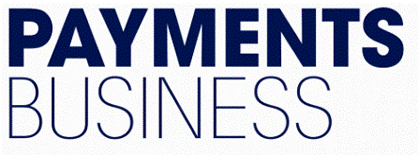 By Jason T. Schwabline
By Jason T. Schwabline
Cheques and modern payments? Two terms that are normally not presented cohesively together. But as consumers’ behaviours move into a more digital payments realm, cheques and the ecosystem that support them have become more relevant than ever.
While consumer use of cheques has leveled out, the details around what they are still being used for is telling. Larger payments requiring an inherent level of trust and security still find the average consumer writing three to five cheques per month. Even more telling is the growth of cheque use in the business sector for similar reasons1.
Leveraging a single solutions platform
So how does this translate into the modern payments landscape? It starts at looking at industry assumptions. Should we have not designed a separate new silo for payments activity to move to? Instead, we should have been looking at the cheque for what consumers and businesses view it: as part of the payments ecosystem.
The consumers of our solution were speaking to us the entire time through their habits and we needed to take a moment and look at exactly what they were saying. Modernizing cheque processing is part of modernizing payments. It is an evolutionary step, not a revolutionary step and there are solutions platforms that are being deployed today to facilitate that very journey.
I believe there are six key reasons why leveraging a single modern payments platform for cheque processing will not only give the consumers and businesses what they desire, but also spark adoption of all other payment types that have languished.
- Increased automation. The modern cheque processing environment is designed with automation in mind. These solutions were designed initially to reduce paper, but now with today’s checks and balances rules engines swiftly process payments from their acquisition all the way through processing with little to no manual intervention.
- Anytime, anywhere availability. Mobile, ATM, ITM, branches and businesses are all connected via imaging to the solutions in our industry. No matter when and no matter where, access to introducing the payment for processing can happen. From the driver on remote routes collecting payments to the consumer donating to a local charity, it is all available today.
- Turn transactions into intelligence. This is more internal to our industry, but cheque processing provides an enormous source of data and business intelligence to leverage. At deposit and interrogation, from paper to image, there are over 150-plus pieces of information reviewed. We can then dig further into the path that the payment was sent from versus its destination. With that we can also see behaviour as it transitions and compares to the other payment types overall.
- Security and compliance. A top reason in my view as to why it’s obvious to work with cheques as a cornerstone is that they are proven. No other modern payment vehicle has been exercised as much as the cheque from a security and compliance realm. It is the very reasoning for the consumer and business behaviours we are seeing. As cheques matured from paper instruments to digital instruments, like depositing cheques via mobile apps, the surrounding support system only got better. Leveraging this piece in modern payments is reason enough from a value perspective.
- Fraud protection. Working hand in hand with the security piece is also the maturation of the fraud models around protecting cheques. Entire companies have built practices around the prevention of fraud in this most trusted payment source. Expertise in this area is high and the industry is able to react quickly to each new scenario presented. All of the cool terms in play today with “artificial intelligence” and “machine learning” have been in practice for years in the cheque processing arena.
- Flexible delivery options. Modern platforms have been created and deployed in Canada as well as in the U.S. that enable quick and reliable delivery models. No longer is it about constructing a new department and its supporting infrastructure to supply processing to a new area: today’s leading solutions drive these options from single scalable platforms.
Viewing the cheque as a modern payment type is a paradigm shift. However, Canada is at the forefront of utilization of these types of technologies and it can only continue to grow. While adoption and methods continue to be debated on the environmental variables surrounding other payment types, the fastest onramp to modern payment processing is already in our hands. Supporting the cheque is a vote towards supporting consumer and business choice in trusted technologies that empower us for today and for the future.
Jason Schwabline is chief strategy officer for Alogent (www.alogent.com). Jason has an extensive background in leading product and strategy organizations in the financial services space. He has a specific focus on developing and growing core and ancillary solutions such as online and mobile banking, core banking systems, teller platforms, cheque imaging solutions and enterprise content management products.
1 Alogent, internal study and research.




